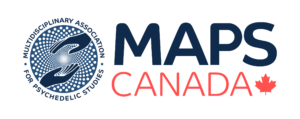The monumental year of 2020 was a lot . With all the changes that happened around the world, it is worth noting that despite the stagnation of our lives in lock-down, there was a juxtaposing movement of rapid sociopolitical developments happening outside of our homes – including the positive strides and legal wins made amidst the ‘psychedelic renaissance’.
Particularly in Canada, we can first look to August 2020, when four palliative care patients were granted access by Health Minister Patty Hajdu to receive psilocybin-assisted therapy to treat their ‘end-of-life’ distress. The four patients applied for their subsection 56(1) exemptions (of the Controlled Drugs and Substances Act (CDSA)) through Therapsil, a B.C. based non-profit coalition who advocates for legal access to psilocybin-assisted psychotherapy. This first wave of exemptions was the first time Health Canada allowed patients to use psychedelic substances for the purposes of medical treatment.
Four months later in December 2020, Health Canada granted 17 exemptions to select healthcare practitioners to use and/or possess psilocybin so that they may develop different forms of therapies for future use. By having access to psilocybin for ‘personal professional training’, medical professionals may better understand and be aware of the substance’s physical, mental, emotional and spiritual effects. This is crucial for doctors who may eventually be prescribing psychedelic drugs and therapists who will be responsible for guiding patients through their unique psychedelic experience. These exemptions last a year and do not mean that doctors can currently prescribe or provide psilocybin to another person.
Fast-forward to February 2021, an additional 20 patients have been granted subsection 56 (1) exemptions for medical purposes and another two healthcare practitioners for professional training purposes. There are many more applications still in the queue. One of the 20 patients happened to be Mona Streleaff, a non-palliative care patient, who received her exemption back in November 2020. This unprecedented move by Health Canada makes her the first individual to receive legal psilocybin-assisted therapy without ever having suffered from a terminal illness. This offers great hope towards who could possibly qualify for psychedelic therapy in the future.
So how were these exemptions made? What is subsection 56(1)? What is the CDSA?
The CDSA is Canada’s federal drug control statute that was passed in 1996. Currently psilocybin is regulated through the CDSA (specifically in Schedule III, along with LSD) which means that it may only be legally accessed for scientific and research purposes. The selling, exportation, importation, possession and production of the drug is strictly prohibited.
With that, in order to be granted legal access to psilocybin-based substances, individuals would need to apply for an exemption, defined under subsection 56(1) of the CDSA. This ‘section of the legislation allows the Minister of Health to approve applications of exemption, should he or she deem it necessary for medical or scientific purposes, or if it is in the interest of the public. So maybe 2020 did have its silver lining after all. But oh wait, it gets better! On December 12, 2020 (The same month psilocybin access was approved for select healthcare professionals), Health Canada announced their intention to repeal amendments made in 2013 to the Food and Drug Regulations (FDR); including subsections C.09.010 (3), C.08.011 (2), which prohibits access to restricted drugs even through the Special Access Program (SAP).
The SAP in Canada allows for healthcare professionals to apply for drugs that are not available in Canada for sale and to treat patients who are experiencing serious or life-threatening conditions, granted that conventional treatment for the patient has failed, been deemed unsuitable or is unavailable. Requests made to the SAP are reviewed on a case-by-case basis and take into consideration the level of scientific evidence to support the use of the drug for the patient’s specific circumstances. When the 2013 amendments were made under Harper’s Conservative Government, the FDR began to exclude restricted drugs (including MDMA and psilocybin) from the SAP. With that, if the intended proposal follows through and the subsections listed above in part C of the FDR are repealed, that would mean that healthcare professionals would be able to request access to psychedelic substances for qualifying patients. Additionally, regulated treatment facilities would be able to begin offering psilocybin-assisted therapies to patients.
Most recently, Health Canada opened a 60-day public consultation which ended February 10, 2021. Along with the waves of exemptions made this past year, the proposal has created much hope surrounding the further development of a legal environment conducive to the continual evolution of progressive psychedelic policies. Overall, 2020 brought forth a strong momentum championing Canada’s stance as a leader in the ‘psychedelic renaissance’.
Note: The proposed amendments of the FDR are not an opinion or endorsement by Health Canada towards psilocybin-assisted psychotherapy, training, or the safety, effectiveness, or quality of psilocybin.


This is a great summary of the important decisions and progress made in 2020, and a concise explanation of the some of the important drug policies which can often be complex and difficult to interpret. Well done!